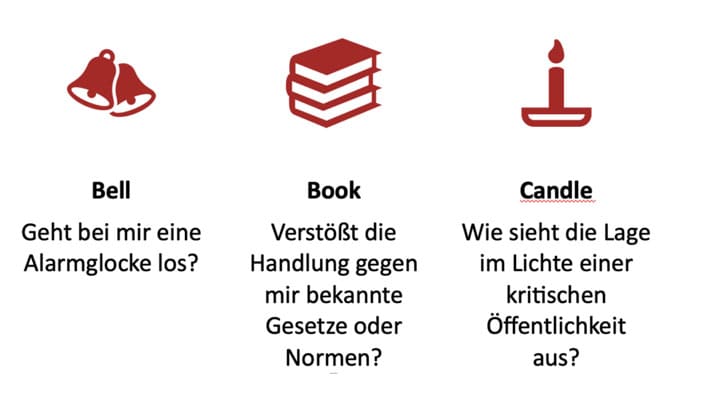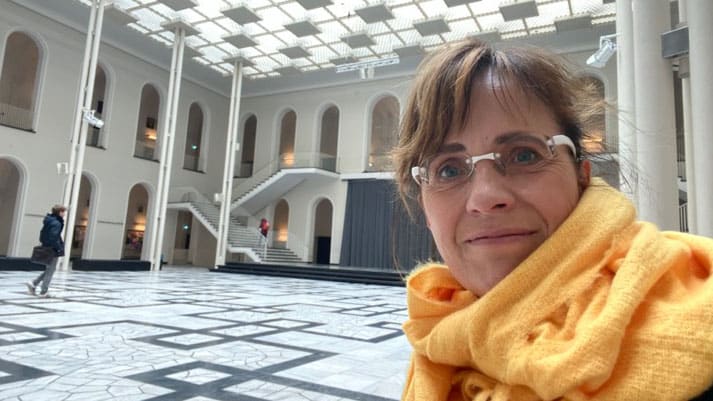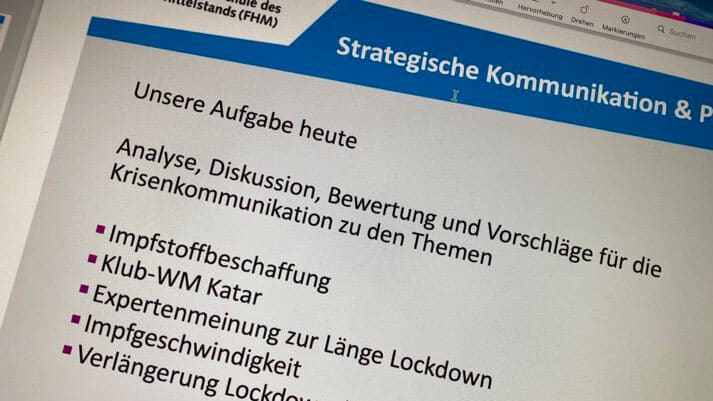Assess crisis
- Titel des Beitrags EN: Assess crisis
- Kachelbild hochladen 16:9 EN:

At the request of the students, I brought forward a topic: Crisis Communication. Understandable, since we have all been operating in a crisis for a year.
Today we dealt with the basic questions: How to determine a situation, what to do in the situation? What have others done well or not well, and what do we base that on?
Crisis communication is extremely simple and at the same time infinitely complicated. Simple because we "only" need to communicate quickly, empathically, honestly and factually. Simple also because we know the motives and emotions of people in crises and feel them in ourselves: In a crisis, we are all afraid of uncertainty and loss of stability, there is a lack of clarity and control.
It becomes complicated because we have to make decisions with potentially far-reaching consequences at very high speed, often without having certainty ourselves, and these decisions can depend on an incredible number of factors.
As a first assessment, the principle of "Bell, Book, Candle" with the three questions helps:
- If I have to evaluate this event, will an alarm bell go off in my mind? (Bell)
- Does the event or action violate any laws or norms that I know of? (Book)
- How does the situation look in light of a critical public? (Candle)
Anyone can make this assessment. To get from the assessment to the right action then requires a good team, a lot of preparation, and ideally experience. Because organizations don't have time for preparation in the acute situation, they need to address this beforehand. An external crisis consultant can provide the experience.
Even if preparation costs time and money, and even if external crisis professionals are not available for free: Both will never be free. Because the question is not whether a crisis will come. But only which one and when.
Contact me if you need to talk about crisis prevention. Either I can do something for you myself or I can recommend a partner from my network.
#prevention #crisis #communication #making sense







